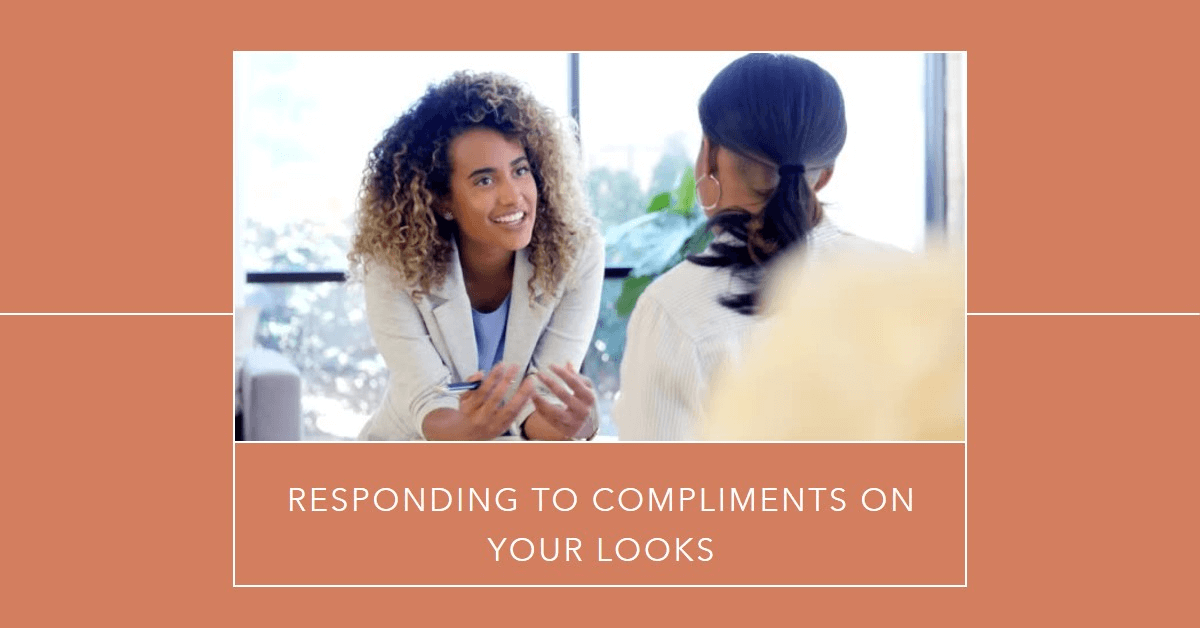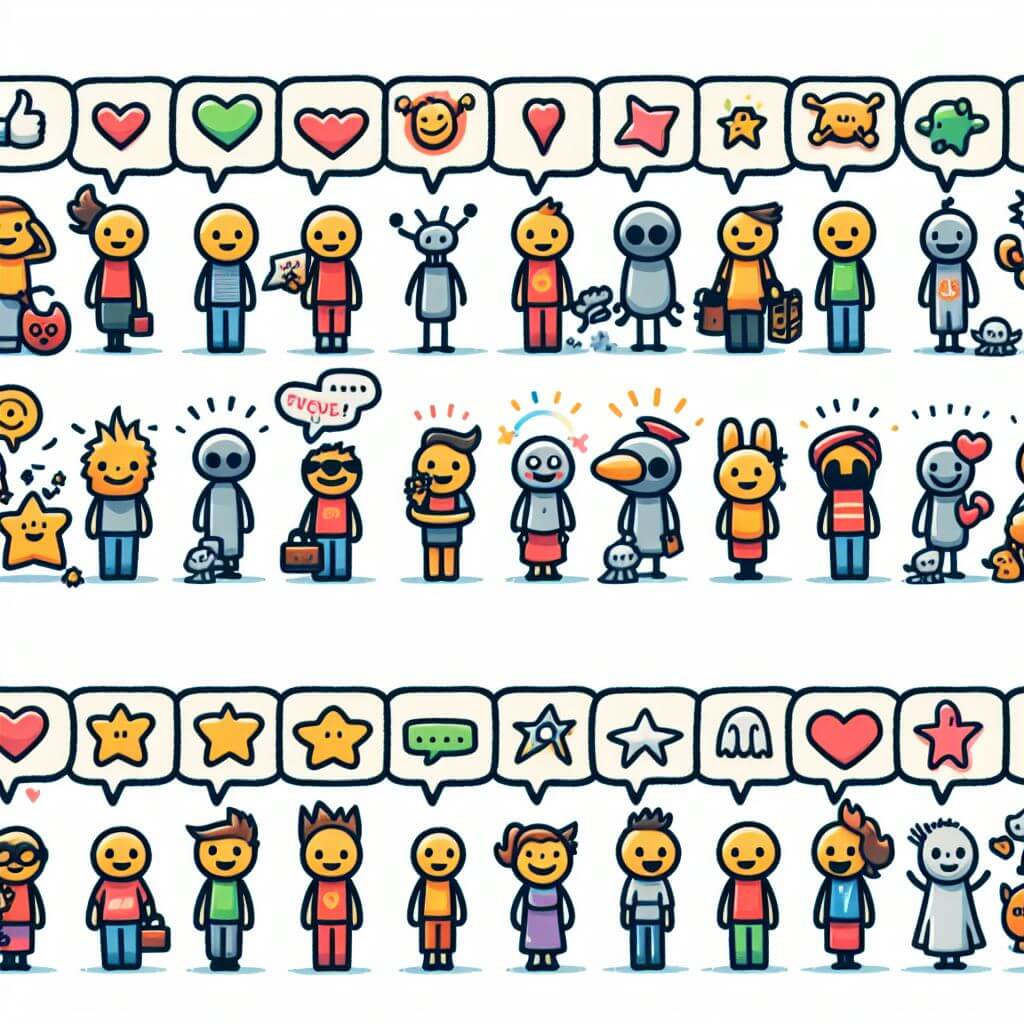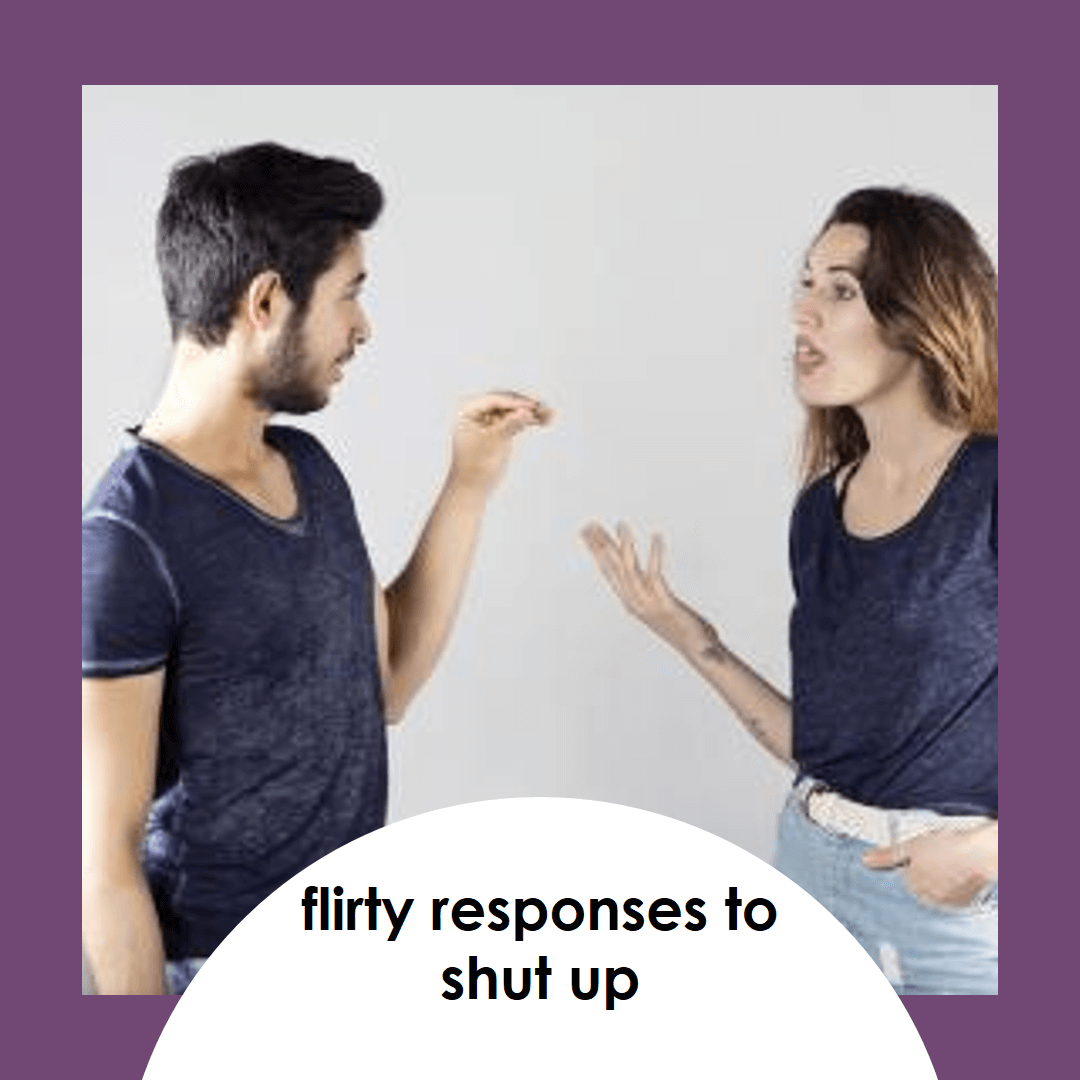How to Reply When Someone Compliments Your Looks

Receiving a compliment on your appearance can be flattering, but also potentially awkward if you don’t know how to respond. This comprehensive guide will give you plenty of good options for replying gracefully and positively when someone compliments your looks.
Why Do People Compliment Looks?

Before diving into responses, it helps to understand why someone is complimenting your looks in the first place. Some common motivations include:
- To Be Friendly. Giving compliments is often simply a way to be polite and nice. Thanking someone warmly for a compliment like this is usually sufficient.
- To Flirt. Compliments may be given as a way to express romantic interest or attraction. Flirting back or letting them know you’re not interested romantically may be appropriate.
- To Make Someone Feel Good. Sincere compliments on looks are often meant to boost another person’s confidence or mood.
- To Bond. Complimenting appearance can strengthen relationships and connections between people.
- To Be Manipulative. In some cases, compliments are given with ulterior motives or maliciously. Use caution in these situations.
With the motivations and context in mind, you can shape your response appropriately.
How to Tell if a Compliment is Sincere or Manipulative

It’s important to be able to discern between sincere compliments and ones with dubious motivations. Here are some tips:
Sincere Compliments Usually:
- Are given freely without expectations of a reciprocal compliment or favor
- Use specific praise rather than generic lines
- Focus on attributes other than just physical appearance
- Come from people you know and trust
- Align with other positive behaviors from the person
Manipulative Compliments Often:
- Come from strangers or casual acquaintances
- Feel forced, excessive, or make you uncomfortable
- Are followed by requests for personal info or favors
- Only focus on physical appearance
- Come from someone exhibiting other negative behaviors
- Feel like they have strings attached
Go with your gut instinct. Sincere compliments should make you feel good, manipulative ones feel awkward or off.
General Tips for Responding to Appearance Compliments
Before getting into specific examples, here are some overall guidelines for replying properly when someone compliments your looks:
- Say thanks. A simple “thank you” is almost always appropriate, even if nothing else.
- Return the compliment. If it feels right, reciprocate with a similar compliment. Just keep it appropriate.
- Keep it simple. You don’t need witty banter or clever comebacks. A short, positive response is sufficient.
- Be gracious. A compliment is a gift. Receive it with grace, even if you are shy or don’t agree with it.
- Consider context. Your response may vary depending on who the person is and the setting.
- Trust your instincts. Go with what feels natural for the situation and your personality.
With these tips in mind, let’s look at plenty of specific examples of how to respond in common compliment scenarios.
Responding to Compliments on Specific Physical Attributes

Compliments often call out specific aspects of physical appearance. Here are excellent ways to reply when someone compliments:
Your Hair
- “Thank you! I really liked how my hair turned out today too.”
- “I appreciate that, I do think this hairstyle suits me well.”
- “Thanks! I was hoping someone would notice my new haircut.”
- “You’re so kind to say that. I’m glad you like my hair.”
Your Outfit
- “I appreciate the compliment on my outfit, it’s one of my favorites too!”
- “Thank you, I took a little extra time picking out this outfit this morning.”
- “You have great style, so it means a lot that you like what I’m wearing!”
- “I just got this recently, so I’m glad you think it looks nice on me.”
Your Smile
- “That’s so nice of you to say, smiling comes naturally to me.”
- “I’m flattered you complimented my smile, that made me smile even more!”
- “Awww thank you, you just absolutely made my day with that compliment.”
- “What a kind thing to notice! Smiling is my favorite.”
Your Eyes
- “You just made my day, I’ve always liked my eyes too.”
- “I appreciate you saying that, I’ve always gotten compliments on my eyes.”
- “Thank you! I’m lucky to have been born with nice eyes.”
- “That means a lot to me, my eyes are one of my favorite features.”
Your Weight Loss/Fitness Progress
- “Thank you so much! I’ve been working really hard and it feels great to have it noticed.”
- “I appreciate you saying that. Getting healthier has required a lot of effort so I’m glad it’s showing.”
- “You have no idea how good it feels to hear you say that after the progress I’ve made.”
- “That motivates me to keep working on my fitness goals. Thank you for noticing!”
Your Makeup or Beauty Look
- “That’s so sweet of you to say! I took extra time on my makeup today.”
- “I’m flattered you like the makeup look I did today, it gave me a confidence boost.”
- “Aww thank you! I used some new makeup techniques today so I’m glad it turned out well.”
- “I really appreciate you saying that, I was hoping my makeup looked good today.”
Your Skin or Complexion
- “You’re so kind to compliment my skin, I’m pretty dedicated to taking good care of it.”
- “Thank you, I think drinking lots of water helps keep my skin looking its best.”
- “That means a lot, I’m lucky that my skin has been cooperating lately!”
- “I’m flattered you said that about my complexion, feeling confident about it makes my day.”
The key is to thank them genuinely and mention the specific attribute they complimented. People love hearing you appreciate their compliments.
Responding to Compliments on Personality Traits

Compliments don’t have to be limited to physical appearance. Sometimes people may compliment personality traits likes humor, intelligence, kindness, or confidence. Here are some responses when someone compliments your:
Sense of Humor
- “I’m so glad I can make you laugh! Laughter is the best medicine.”
- “Aww thank you! I think having a good sense of humor is so important.”
- “You’re so kind, I’m happy my jokes can brighten someone’s day.”
- “I appreciate you saying that! Making people smile matters a lot to me.”
Intelligence
- “Wow, thank you for the kind words! I work hard but it’s nice to have it recognized.”
- “You flatter me, I still feel like I’m always learning new things though.”
- “I appreciate you saying that. I always aim to expand my mind and knowledge.”
- “That means a great deal to me. Intelligence is something I value highly.”
Kindness
- “I’m so glad I can express kindness in a way you notice. The world needs more of it.”
- “You just made my entire day with that. I aspire to be kind to everyone.”
- “I sincerely appreciate that. Kindness comes from my heart.”
- “That compliment means the world to me. I believe kindness is so important.”
Confidence
- “Thank you, I’m glad my confidence shows! It’s something I’ve worked hard to build.”
- “Aww you’re so sweet to say that! Feeling confident brightens my whole day.”
- “I appreciate you noticing. Self-confidence is really important to me.”
- “You’re so kind. Compliments like that make me feel even more confident!”
Complimenting not just looks but deeper personality traits shows that someone sees and appreciates more than your surface-level appearance.
Responding to Compliments from Different People

The relationship you have with the person giving the compliment can influence your response. Here are examples tailored for different relationships:
Compliments from Friends
- “Aww, you’re such a good friend! Thanks girl!”
- “I knew I could count on you to say something nice about my new shirt!”
- “You always know how to make me smile with compliments like that.”
Compliments from a Partner or Spouse
- “You’re the best, I love you babe!”
- “You sure know how to make your woman feel amazing.”
- “Even after all these years, you still give the best compliments.”
Compliments from Family Members
- “You’re too sweet mom/dad, thank you!”
Compliments from Colleagues
- “That’s so thoughtful of you to say! Working with great coworkers like you makes coming to the office a pleasure.”
- “I appreciate you noticing – I try to always be at my best at work. Thank you for making the office such a positive environment!”
- “You just made my day – it’s rewarding getting a compliment from someone I respect at work.”
Compliments from Your Boss
- “Thank you so much for the kind words. I really enjoy contributing my skills and talents here.”
- “Getting a compliment from you means so much to me. I admire you as a leader and expert in our field.”
- “I appreciate you taking the time to give me positive feedback. It motivates me to continue growing professionally.”
Compliments from Strangers
- “That’s so nice of you to say to a complete stranger – it really made my day, thanks!”
- “You’re very kind to notice and give such a polite compliment to someone you don’t know.”
- “I appreciate the sweet compliment. It takes a caring person to say nice things to random people they meet.”
Compliments from Acquaintances
- “We don’t know each other well, but what a thoughtful compliment. Thank you, I’m flattered.”
- “I appreciate you taking a moment to say something nice to me even though we just met. What a confidence boost!”
- “That was so gracious of you to compliment me. It’s a pleasure getting to know someone so genuinely nice.”
The key is shaping your response based on your relationship and the context of the setting. But focusing on thanking them is always a safe bet.
Responding to Compliments from Different Genders
The gender of the person giving you the compliment can also impact your response. Here are some excellent reply examples based on whether it’s from a man or woman:
Compliments from Men
- “You’re so kind to notice, thank you!”
- “I appreciate the sweet compliment. You really know how to make someone feel great.”
- “That’s so nice of you to say. It certainly made me smile.”
Compliments from Women
- “Aww thank you girl, you’re the best!”
- “As someone who takes pride in my appearance, I love compliments like that from stylish women like yourself!”
- “You are too sweet! I wish more women would build each other up with genuine compliments like that.”
The main difference is that compliments from women can be an opportunity for bonding, while with men the focus is on politely showing gratitude.
Responding Based on the Type of Compliment
Look at these examples for replying to different types of appearance-related compliments:
Compliments on Something You Were Born With
If it’s something genetic like your eyes, facial features, skin tone, etc.
- “I’m grateful to have been born with what you consider to be nice eyes.”
- “Thank you, I appreciate compliments on features I was fortunate enough to inherit.”
- “That’s so thoughtful of you to compliment something I can’t take any credit for!”
Compliments on Something Within Your Control
Like weight loss, clothing choice, makeup, how you styled your hair that day, etc.
- “I’m flattered you think the effort I put into styling my hair paid off!”
- “Thank you! I’m glad you think the hard work I put into losing weight has been noticeable.”
- “I appreciate you noticing. I did take extra time picking out this outfit today.”
Replying in these ways shows you recognize whether it was in or out of your control.
Giving Compliments Back without Being Creepy

It’s often nice to return a compliment after receiving one. But how can you do so without seeming weird or creepy? Here are some tactful ways to compliment back:
- Keep it focused on something not physical. Give a tasteful compliment about their style, personality, accomplishments, etc.
- Compliment something they chose. Like their hair, makeup, outfit – not physical attributes they can’t control.
- Give an indirect compliment. Like saying “You always look so put together” rather than commenting directly on their looks.
- Use appropriate compliments for the relationship. More intimate compliments only for close relationships. Casual compliments for coworkers, acquaintances, strangers.
- Use compliments that you’d be comfortable receiving from them. Don’t say anything that would seem creepy or suggestive if roles were reversed.
- Read their reaction and vibe. If they seem uncomfortable or don’t reciprocate, leave it at a simple thank you.
The motive should be spreading kindness and positivity, not flirting or lingering on looks. Keep it tasteful and appropriate.
Responding to Appearance Compliments at Work

Getting complimented at work can be tricky. You want to be gracious but also professional. Here are some go-to responses for work compliments:
- “You’re too kind. I try to present myself well at the office.” Polite and focused on professionalism.
- “That’s so considerate of you to say. Coming to work put-together is important to me.” Emphasizes it’s about being work-appropriate.
- “I appreciate that, though brains over beauty is what matters most here!” Deflects to competence and skill rather than looks.
- “Thank you, it’s rewarding to hear I’m representing the company well.” Shifts to being a brand ambassador.
- “You sure know how to make a coworker feel great!” Friendly yet still professional.
The key is to deflect the focus onto professionalism rather than your personal appearance. It’s safest to keep work compliments impersonal.
Saying “Thank You” the Right Way
Simply saying “thank you” is a go-to response for receiving any compliment. However, there are some tips for saying it most effectively:
Be sincere. Don’t just reflexively say thanks. Show you mean it. Using their name helps: “Thank you, Debra!”
Show appreciation. Say “I appreciate…” or “I’m grateful for…” to emphasize how much it meant to you.
Compliment them back. Like, “Thanks Bob, you’re always so thoughtful.”
Keep the mood upbeat. Smile, make eye contact and respond enthusiastically. This gives positive energy.
Give value-adding compliments, not just empty flattery. Like thanking someone for their kindness or empathy.
Saying thanks the right way makes someone truly feel the positive impact of their compliment.
How to Take Compliments Even If You’re Shy or Don’t Agree

Being shy or not agreeing with compliments can make responding tough. Here are tips:
Keep it simple. Just a basic “thank you” or “that’s kind” is OK if you’re shy.
Focus on gratitude. Being thankful they were nice enough to pay you a compliment.
Remember it’s their perspective. It’s not about whether you agree, but appreciating their intent.
Compliment them back. This takes the attention off you.
Body language matters. Smiling or nodding to show appreciation.
Don’t deny it. Saying you don’t deserve it or dismissing the compliment. Just accept it graciously.
Have some go-to responses ready if needed, like “You’re too kind” or “I appreciate you saying that.”
Being shy or disagreeing with compliments takes practice getting used to. But simply thanking people for their kindness matters most.
How to Tactfully Deescalate Unwanted Compliments
Unfortunately, some compliments may feel unwelcome, inappropriate or make people uncomfortable. While it’s ideal to just politely thank them, here’s how to tactfully deescalate unwanted or excessive compliments:
- Keep it simple. Just say a brief “Thank you” if you don’t want to encourage more.
- Change the subject. Redirect the conversation elsewhere.
- Use humor. A joke like “Are you trying to butter me up for something?” can ease the awkwardness.
- Feign being rushed. Say you’re late for a meeting to exit an uncomfortable interaction.
- Mention your partner. For example, “My husband always compliments me like that too.”
- Order a drink or snack. This gives a distraction from continuing an unwanted engagement.
- Limit eye contact. Don’t engage if you don’t want to encourage more interaction.
The goal is to do so in a polite but clear way that doesn’t invite further unwanted compliments. Trust your instincts on when a line has been crossed.
Declining Compliments Without Being Rude

It’s possible to politely decline compliments in a tactful, gracious way. Here’s how:
- Thank them briefly. As in “Thanks, but…” to start.
- Keep going. Don’t feel obligated to stop and chat if you don’t want unsolicited attention.
- Offer a reason. Such as being late, meeting a friend, or not in the mood to talk.
- Don’t overexplain. You don’t owe details about why you’re declining a compliment from a stranger.
- Use body language like avoiding eye contact or turning away to indicate disengagement.
- Wish them well. As in “Have a nice day!” so parting feels cordial.
- Ignore if needed. If you feel unsafe or uncomfortable, don’t feel obligated to respond.
The goal is to decline unwanted attention while respecting yourself and others’ dignity.
How to Tell if a Compliment is Inappropriate
Some compliments cross the line into inappropriate or unprofessional territory. Here are signs a compliment is improper:
- It’s about physical attributes you can’t control, like body shape or skin color.
- It sexualizes your appearance or makes sexual remarks.
- It comes with romantic/sexual pressure or unwanted invites after.
- It draws excessive attention from coworkers or makes work uncomfortable.
- It references things like your marital status or fertility.
- It’s too intimate or familiar from someone you’re not very close with.
- It only praises your looks, not your competence or character.
- It has implications or strings attached.
- It gives you an instinctively uncomfortable or unsafe feeling.
Trust your gut. Polite compliments should make you feel seen, unsafe ones objectified.
Responding to Lewd or Inappropriate Compliments
If you receive an overtly sexual, lewd or inappropriate comment disguised as a “compliment”, here are ways to respond:
- Call it out directly: “That comment was inappropriate and uncalled for.”
- Stand up for yourself: “I won’t tolerate sexual comments.”
- Don’t apologize or make excuses: You have nothing to apologize for.
- Remove yourself from the situation if needed: Get to a safe place.
- Alert relevant authorities if harassment continues: Report inappropriate workplace conduct, for example.
- Set consequences: “If inappropriate comments continue, I’ll have to end this conversation.”
- Get support: Confide in trusted friends and loved ones.
The key is addressing it head on without shame. Inappropriate comments say much more about the commenter than you.
How to Compliment Back without Flirting
Giving compliments can brighten someone’s day, but you may not want it to come across as flirting. Here are tips for platonically complimenting someone:
- Keep it focused on something not physical. Like their skills, character, achievements.
- Compliment something they have control over – talent, clothing style – not innate physical attributes. This avoids anything too personal.
- Use compliments appropriate for the relationship. More intimate compliments only for very close connections. Casual compliments for coworkers or loose acquaintances.
- Give indirect compliments rather than commenting directly on appearance. Such as “You always look so classy” rather than “You’re hot”.
- Limit compliments. Don’t go overboard, as excessive flattery can seem suggestive or manipulative.
- Watch their reaction. If they seem uncomfortable, don’t persist.
- Make your intentions clear if needed. You can subtly mention your significant other or that you’re not looking to date anyone new.
Giving compliments with purely positive motives, not as a way to hit on someone, will come across sincerely.
Asking “Do you really think so?” when unsure how to take a compliment
It’s common to be unsure how to take compliments, especially if your self-esteem is low. Saying “Do you really think so?” when someone compliments you can help discern their sincerity:
Pros of asking:
- It gives them a chance to elaborate if it was an empty platitude.
- It shows you are thoughtful about compliments rather than just accepting praise blindly.
- It gives insight into their motivations – are they just being nice or do they mean it sincerely?
Cons of asking:
- It could make the interaction uncomfortable or awkward.
- It may come across as overly insecure or fishing for more compliments.
- They may be offended if they feel their sincerity is being questioned.
Tips for asking gracefully:
- Maintain a light, curious tone rather than skeptical.
- Follow it up with thanks and appreciation for their words, whether you believe them or not.
- Use it sparingly – being overly self-deprecating about compliments you receive can become off-putting.
- Reserve it for cases where you genuinely can’t tell if it’s sincere or just polite flattery.
So “do you really think so?” can be a useful question if used judiciously and tactfully. Just be prepared for a variety of responses.
Conclusion
Learning to graciously accept compliments on your appearance is an art that takes practice. With the examples and guidance above, you should feel better prepared to respond thoughtfully to any compliment that comes your way.
The most important things are to:
- Be aware of the intent behind a compliment and shape your reply appropriately.
- Accept praise with gratitude, even if you are shy or don’t agree with it.
- Stay tactful yet take action if a compliment becomes inappropriate.
- Compliment back sincerely but avoid flirtatious overtones.
- Trust your instincts if something feels off or crosses a line.
Remember, a tasteful, heartfelt compliment is a gift. Honor that by receiving it with openness, positivity and grace. Both giver and receiver walk away feeling good.






